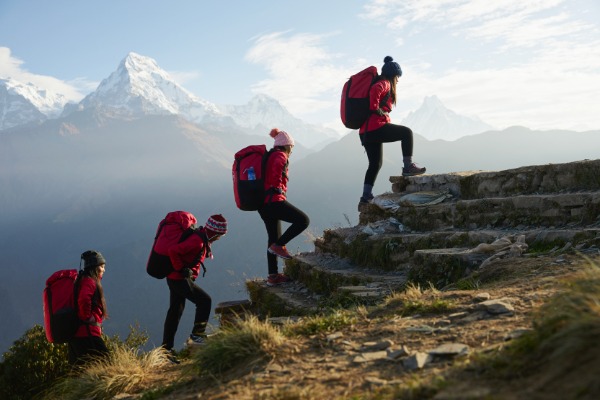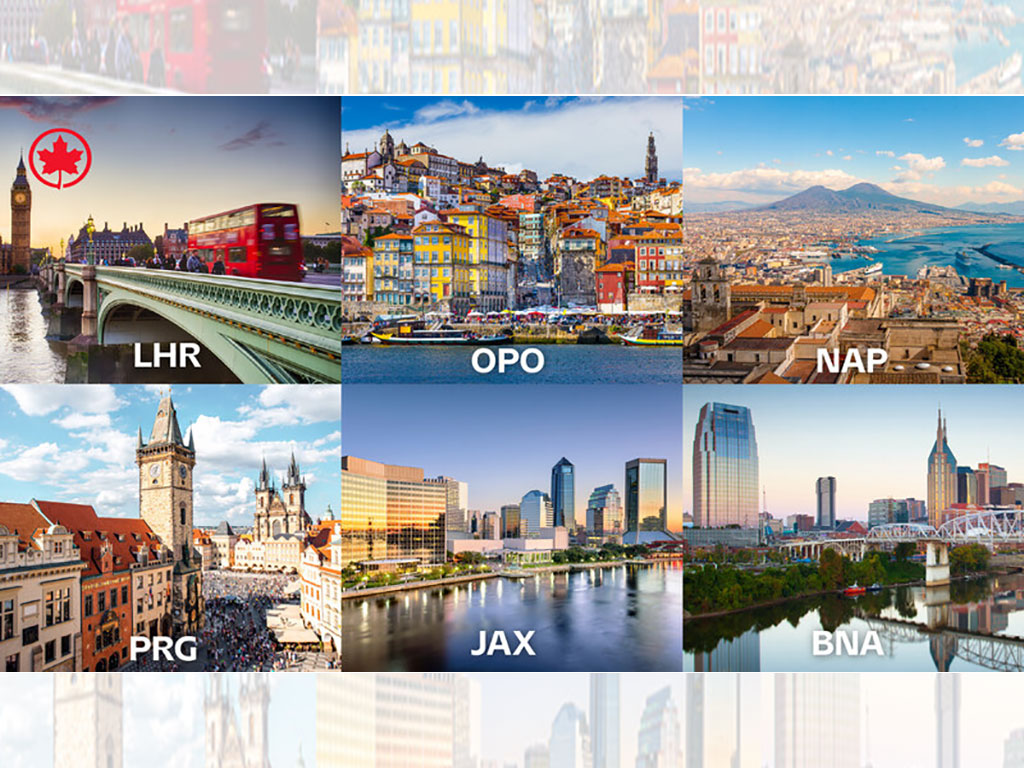Travel On The Rebound

Travel is finally rebounding after two years and an estimated 208 million North American Adults (81%) expected to travel for Summer 2022.
Intrepid Travel, the B Corp certified tour operator that has been a leader in decarbonizing the tourism industry, has put together a list of insights on the most sustainable ways to get from point A to point B for travellers interested in a climate-conscious adventure.
“Travellers are re-evaluating how they travel,” says Dr. Susanne Etti, Intrepid Travel’s Global Environmental Impact Manager, and one of Adweek’s 12 Sustainability Stars of 2022. “They are considering a trip’s environmental impact and choosing alternatives that reduce CO2 emissions associated with transport, accommodation, food, shopping, etc. Protection of the environment is an increasingly felt issue, especially among young people, who are feeling the depths of anxiety. They want environmentally conscious, experience-rich travel that invests in local communities.”
Tips for a climate-conscious adventure from Dr. Etti:
- “Before even taking any flight, consider do you really need to fly? Can you stay domestic or go by other ‘slow’ transport means such as train or car? If you do fly, make it worthwhile.”
- “Fly responsibly instead of ignoring climate change. Airplanes really pump out the carbon. Tourism accounts for 8% of global carbon dioxide emissions, and flights cause about a quarter of that.”
- “Choose to fly with an airline that has a good emission reduction record such as United Airlines or KLM, and look for airlines that use new planes and sustainability aviation fuel.”
- “When you tick the carbon-offset box, aviation companies direct the few extra dollars you pay to environmental improvement schemes which help sequester the carbon it takes to get one person from A to B. Your flight will still release a large amount of CO2 into the atmosphere, but your indirect donation to energy-efficiency or forestry projects will counter a portion of it.”
- “You can use google search to get average emissions data for every flight.”
- “Fly economy rather than business class, as flying first class gives you a footprint around 5.5 times larger than that of an economy passenger.”
- “Fly as direct as possible and minimize stop overs. Use connecting trains in arriving countries i.e., arrive in London take train to get to Glasgow.”
- “Minimize luggage weight: Weight has an impact on emissions. Fuel consumption goes up with the weight of an aircraft, and power needed while luggage spins on the baggage carousel will add up for multiple travellers with overweight bags.”
- “Once you get to your destination, see if you can get by with walking, cycling or by using public transport such as trains and buses. Trade a private car for a toy train, longboat, or tuk tuk. Not only does travelling on public transport let you swap chuckles with your neighbours in their territory, but it also cuts pollution and carbon emissions. Zip around on a tuk-tuk in Southeast Asia, climb into the mountains on India’s famous toy train, hire a bike or walk when it’s convenient.”
- “Trekking, cycling, kayaking, walks in the city, tasting of local products and of course relaxation: the activities to do during a climate-conscious adventure are many!”
- “Travellers should explore neighbourhood eateries instead of eating in chain restaurants. Comfort eating or drinking makes sense when you’re in a sea of unfamiliarity, but just be aware that most of what you pay will ultimately flow into the pockets of wealthy shareholders overseas. To lift local communities, dine at locally owned and run restaurants, bars and market stalls. You’ll learn some new words, uncover intriguing flavours and ingredients, and get that story of the time you ate fried crickets in Thailand!”
- “Plant-based diets are a major opportunity for mitigating and adapting to climate change. Plant-based foods generally have a much lower carbon footprint than animal-based foods, so look for every opportunity you can to include plant-based meals. Every Intrepid Real Food Adventure includes at least one plant-based meal that showcases local fruit, vegetables, nuts and seeds as we continue to innovate in ways that promote and support sustainability and invests in the health of our planet.”
- “Also, think about swapping your hotel room for a night in a village. Community-based tourism is popular everywhere from Cambodia to Guatemala. Whole neighbourhoods work as a cooperative to offer activities such as cooking workshops and trips to the local attractions, creating a tourism destination that benefits all. You invest directly in often rural, poor and economically marginalized communities, and experience an authentic slice of village life; your hosts earn a fair income and preserve their cultural and environmental assets.”


